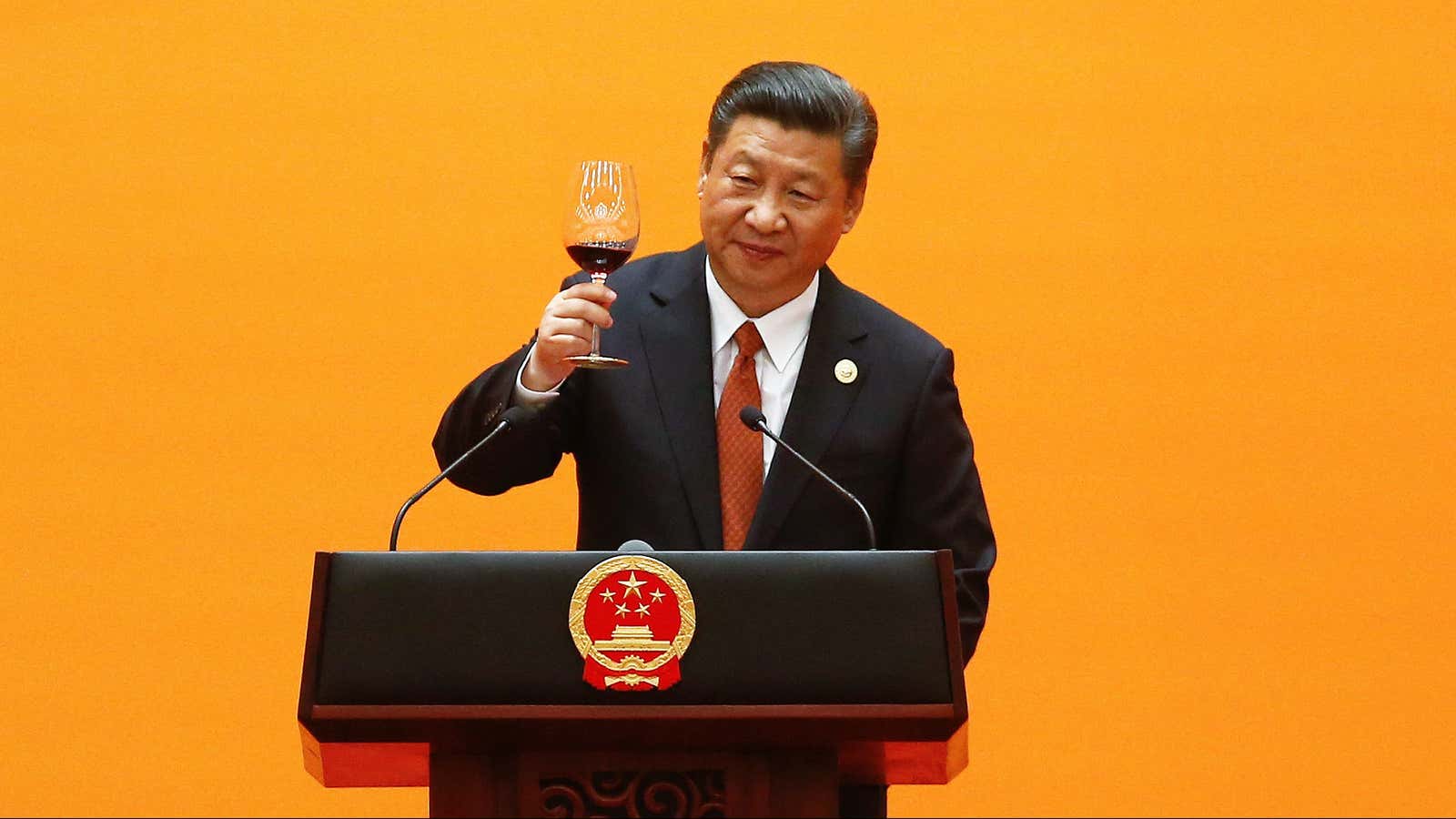Well before the end of Chinese president Xi Jinping’s first term, political experts had already begun speculating that he was planning to stay in power for longer than the 10-year limit accepted by previous leaders. This weekend, China gave the strongest credence yet to the prediction.
State-run Xinhua news agency said on Sunday (Feb. 25) that the Central Committee of China’s ruling Communist Party of China has proposed removing the phrase that the president and vice-president “shall serve no more than two consecutive terms” from the country’s constitution. There were no other details in the report.
The Central Committee is made up of a little over 200 top Communist Party members. It was elected anew at the 19th Party Congress in October 2017, which also ushered in Xi’s second five-year term as general secretary of the Communist Party, the supreme leadership role in China. After Xi first became party chief in November 2012, that paved the way for him to become president in a rubber-stamp vote in March the following year.
The Xinhua announcement came after a Sunday meeting of the Politburo—the top 25 members of the Communist Party—and ahead of a meeting of the Central Committee starting Monday, which will discuss institutional changes to be taken up at the key party meetings this month.
Before this weekend, the evidence that 64-year-old Xi might stay in power longer than the norm included the newest additions to his string of titles and descriptions, such as “leadership core” in 2016. A political rival named Sun Zhengcai, once seen as a possible successor to Xi, was enveloped in a corruption investigation and was booted out of the party in September. And the other six Politburo members who appeared before China at the conclusion of the October congress along with Xi didn’t include anyone young enough to be Xi’s successor. Another sign of Xi’s consolidation of power at the congress: his name was inserted into the party’s constitution, an honor enjoyed by no Chinese leader while still in power since Mao Zedong.
But although the move might seem a clear indication that Xi will take a third term as president, the opacity of the party’s processes mean that it’s impossible to be sure. In the run-up to the 19th Party Congress, party watchers speculated that Wang Qishan, the head of the party’s corruption investigation division, would be kept on the seven-member Politburo Standing Committee (PSC) even though he was 69, past the conventional retirement age. That, it was said, would be a sign the way was being paved for Xi to do the same beyond 2022. Wang, in the end, didn’t remain on the PSC—though there’s still a chance that he may not actually retire. At meetings this month, he could take the role of vice president.
Those who disbelieve the third-term speculation don’t necessarily think that Xi is willing to relinquish his hold on power after 2022. Instead, they point to another fact about Chinese politics: it’s perfectly possible to keep a hold of power without a throne.
